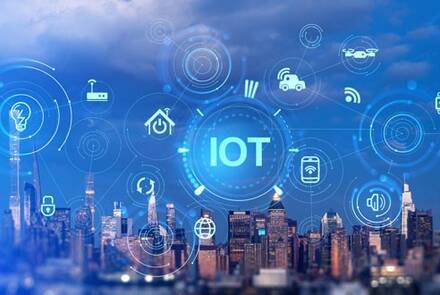Embracing FIWARE: The Power of Open Source in Smart City and IoT
In the age of digital transformation, the concept of a "smart city" is no longer a futuristic dream but a present reality. These cities are built on the foundation of Internet of Things (IoT) technologies, seamlessly connecting various aspects of urban life to enhance efficiency, sustainability, and quality of life. One integral component that has been driving innovation in this realm is FIWARE – an open-source platform that is revolutionizing the way we build and manage smart city and IoT projects.
What is FIWARE?
FIWARE is an open-source platform specifically designed to support the development of smart applications in various domains, including smart cities and the Internet of Things. It offers a comprehensive set of components and standardized APIs that facilitate the creation of innovative, interoperable, and scalable solutions. Here's why FIWARE is making waves in the realm of smart cities and IoT projects:
- Open Standards and Interoperability
One of the most significant advantages of FIWARE is its commitment to open standards. These open standards ensure that different devices, systems, and applications can seamlessly communicate and work together. In the context of smart cities and IoT, this means that data from various sensors, devices, and applications can be integrated, analyzed, and acted upon efficiently. - Scalability and Adaptability
Smart city and IoT projects often require flexibility and scalability. FIWARE offers a modular architecture that allows developers to pick and choose the components they need, making it easy to adapt to project-specific requirements. Whether it's a small-scale deployment or a large urban transformation, FIWARE can accommodate the needs of the project. - Cost-Effective Solutions
Embracing open source technology, like FIWARE, can significantly reduce project costs. Developers can leverage a wealth of pre-existing components, reducing the need to build everything from scratch. This cost-effectiveness is particularly crucial for municipalities and organizations with budget constraints. - Community Collaboration
FIWARE has a vibrant and active community of developers, users, and organizations that collaborate to improve the platform continually. This community-driven approach ensures that FIWARE remains up-to-date, secure, and responsive to the evolving needs of smart city and IoT projects. - Vendor Neutrality
Open-source platforms like FIWARE promote vendor neutrality, meaning you are not locked into a single proprietary solution. This fosters competition, innovation, and choice, allowing organizations to select the best solutions for their specific needs.
Why Open Source Is a Good Idea in Smart City and IoT Projects
Now that we've explored what FIWARE is and its significance in the smart city and IoT landscape, let's take a broader look at why open source is a good idea in these types of projects:
- Collaboration and Knowledge Sharing
Open source communities foster collaboration and knowledge sharing among developers, researchers, and organizations. In the realm of smart cities and IoT, this collaboration leads to faster innovation and the development of best practices, ultimately benefiting the entire ecosystem. - Adaptability and Customization
Open source software is highly adaptable and customizable. Smart city projects are diverse, each with its unique requirements. Open source solutions provide the flexibility to tailor software to fit specific needs. - Community Support
Open source projects often come with a robust community of users and contributors who can provide support, share insights, and troubleshoot issues. This support network can be invaluable in the complex world of smart city and IoT deployments. - Transparency and Security
Open source software allows for transparency in code and architecture. This transparency can lead to better security practices, as vulnerabilities are more likely to be identified and resolved quickly. - Long-Term Viability
Open source projects tend to have long-term viability since they are not tied to the fortunes of a single vendor. This ensures that smart city and IoT projects can continue to evolve and receive updates even as technology landscapes change.
In conclusion, FIWARE, as an open-source platform, is at the forefront of transforming smart city and IoT projects. The power of open standards, scalability, and community-driven development is paving the way for innovative, interoperable, and cost-effective solutions (See also: Benefits of Open-Source Standards in Smart Cities and IoT). Embracing open source in the smart city and IoT realm is not just a good idea; it's a strategy that can drive long-term success, sustainability, and prosperity for urban environments worldwide.
For more information about Trigyn's Smart City and IoT Services, Contact Us.






